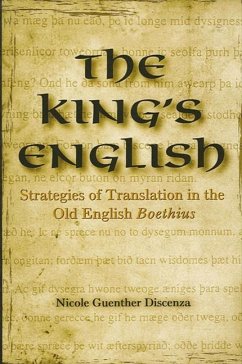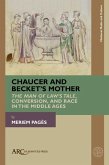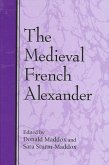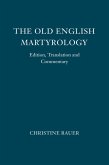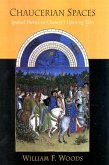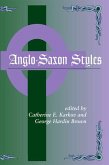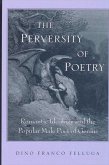In the late ninth century, while England was fighting off Viking incursions, Alfred the Great devoted time and resources not only to military campaigns but also to a campaign of translation and education unprecedented in early medieval Europe. The King's English explores how Alfred's translation of Boethius's Consolation of Philosophy from Latin into Old English exposed Anglo-Saxon elites to classical literature, history, science, and Christian thought. More radically, the Boethius, as it became known, told its audiences how a leader should think and what he should be, providing models for leadership and wisdom that live on in England to this day. It also brought prestige to its kingly translator and enshrined his dialect, West Saxon, as the literary language of the English people.
Nicole Guenther Discenza looks at the sources Alfred used in his translation and demonstrates his selectivity in choosing what to retain, what to borrow, and how to represent it to his Anglo-Saxon audience. Alfred's appeals to Latin prestige, spiritual authority, Old English poetry, and everyday experience in England combine to make the Old English Boethius a powerful text and a rich source for our understanding of Anglo-Saxon literature, culture, and society.
Nicole Guenther Discenza looks at the sources Alfred used in his translation and demonstrates his selectivity in choosing what to retain, what to borrow, and how to represent it to his Anglo-Saxon audience. Alfred's appeals to Latin prestige, spiritual authority, Old English poetry, and everyday experience in England combine to make the Old English Boethius a powerful text and a rich source for our understanding of Anglo-Saxon literature, culture, and society.
Dieser Download kann aus rechtlichen Gründen nur mit Rechnungsadresse in A, D ausgeliefert werden.

